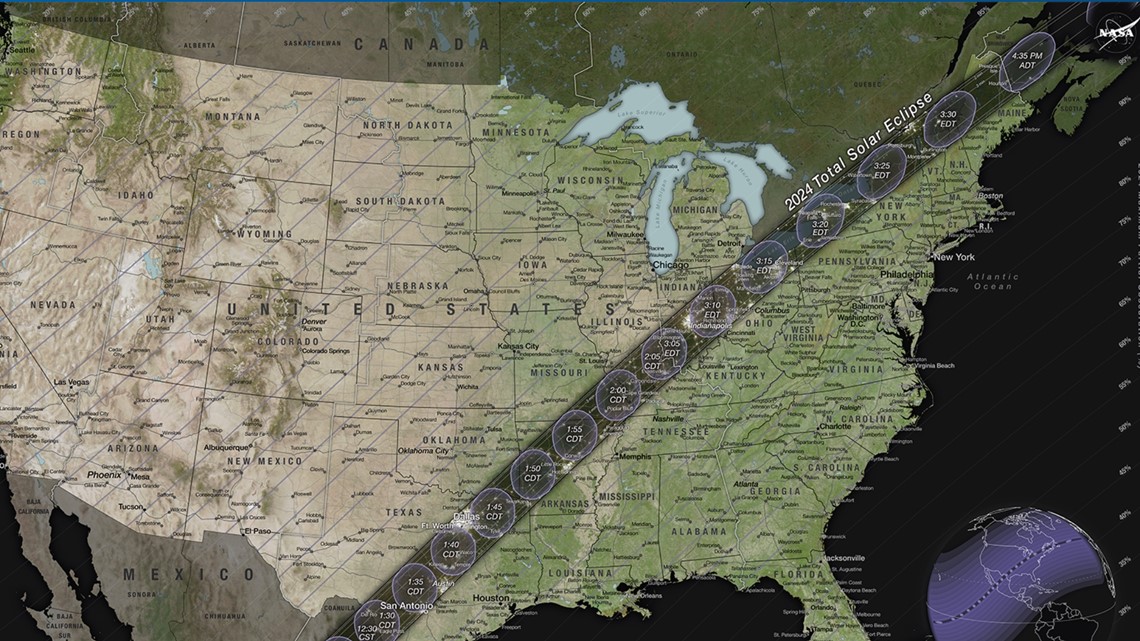Hey there, sky watchers! Guess what? The United States is gearing up for an amazing event—the first total solar eclipse in seven years, set to dazzle us on Monday, April 8, 2024. Picture this: the moon gracefully sliding between Earth and the Sun, creating a mesmerizing shadow and casting an enchanting darkness.
This celestial show is taking its tour across North America, making stops in Mexico, the United States, and Canada. As the moon steals the spotlight, some lucky spots will experience a cool darkening of the sky, like a magical blend of dawn and dusk.
Circle that date on your calendar because April 8, 2024, is when Colorado gets its share of the cosmic spectacle. While it won’t be a total eclipse, we’re in for a treat with a partial solar eclipse painting the skies between 11:30 a.m. and 1:30 p.m., reaching its peak around 12:30 p.m.
Curious about where to catch the total eclipse? Hold on to your hats—every single one of the 48 contiguous states gets at least a partial solar eclipse. The path of totality, where things get extra special, stretches from Texas to Maine, treating certain areas to over 4 minutes of eclipse magic, like Economy, Indiana.
According to NASA, a whopping 31.6 million people are in the path of totality this time around, a significant jump from the 12 million during the 2017 eclipse. Brace yourselves because the maximum totality duration is an impressive 4 minutes and 28 seconds in an area northwest of Torreón, Mexico, beating the 2017 record of 2 minutes and 42 seconds in Carbondale, Illinois.
Now, let’s zoom into the nitty-gritty of Colorado’s celestial party. Depending on where you are, get ready for a sky show ranging from 54% to 78% solar eclipse. In the southeast, places like Springfield, Holly, and Lamar will enjoy about 75% totality. Meanwhile, up in the northwest, including Grand Junction, Dinosaur, Craig, and Steamboat Springs, it’s a bit under 60% totality.
Denver folks, it’s time to grab those eclipse glasses! The Mile-High City will reach 65% totality during the eclipse, starting at 11:28 a.m. and wrapping up by 1:53 p.m. The peak moment hits at 12:40 p.m. with a 65% eclipse. Denverites can soak in the cosmic display for a total of two hours and 25 minutes.
But, safety first! Whether you’re in Colorado or anywhere along the eclipse path, don’t forget those certified solar glasses. Look for the International Organization for Standardization (ISO) emblem on the glasses and packaging to ensure your eyes are well-protected.
John Jerit, the big shot at American Paper Optics, says certified glasses block just the right amount of ultraviolet and intense visible light. Watch out for those tempting cheaper alternatives from foreign sellers and stick to the trustworthy sources.
Feeling the excitement? Plan your eclipse-watching experience like a pro using online resources like the National Solar Observatory and Eclipse2024.org. Get ready to witness the skies putting on a celestial dance on April 8, 2024! The cosmos is ready to wow you.















































